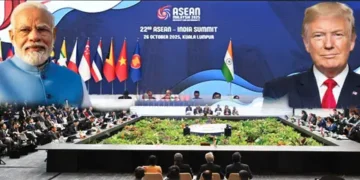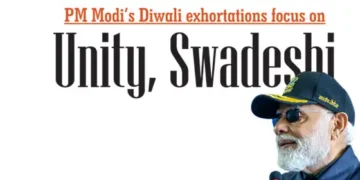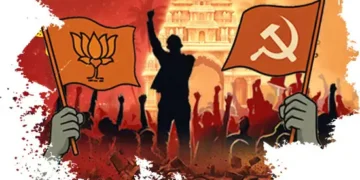 THE results of the General Elections 2024 indicate that the BJPled National Democratic Alliance will form the government, but not with a big majority. The Congress and its allies of the INDI Alliance, standing close behind, managed to save face and will be in a position to provide a credible opposition. The election has been marked by wild allegations and cacophonous accusations concerning EVMs, institutional manipulation, and threats to democracy.
THE results of the General Elections 2024 indicate that the BJPled National Democratic Alliance will form the government, but not with a big majority. The Congress and its allies of the INDI Alliance, standing close behind, managed to save face and will be in a position to provide a credible opposition. The election has been marked by wild allegations and cacophonous accusations concerning EVMs, institutional manipulation, and threats to democracy.
The outcome, however, shows a robust and mature democracy, resilient in the face of such controversies, with the electorate discerning enough to make the right choice – a choice that does not detract from the development agenda but provides a check on totalitarian tendencies.
Attempts to cast a shadow over the electoral process by debates over alleged EVM tampering and allegations of institutional compromise have failed. Critics of the Government had alleged the erosion of democratic norms and the potential for authoritarian rule. Yet, the electorate’s decision demonstrates a deep-rooted belief in the democratic process. Despite the immaturity displayed in several political debates, the foundation of the Indian democracy has proven to be deeper and more robust than many anticipated. The election results underscore the electorate’s maturity, refecting a nuanced understanding of the political landscape. It is beyond dispute, and debate, that by re-electing the NDA, the voters have endorsed Prime Minister Narendra Modi’s policies on development, the construction of the Ram Temple in Ayodhya, and the abolition of Article 370 in J&K. At the same time, they have ensured a credible opposition at the Centre.
The results ofer signifcant lessons for all political parties. The electorate has asserted that it values a balanced approach to governance, one that supports development and progress while safeguarding democratic principles. Political parties must glean from this mandate the importance of presenting credible alternatives and engaging in constructive debates. The presence of a credible opposition is essential for the health of a democracy. It ensures that the Government is held accountable and that diverse viewpoints are represented. This election has reafrmed the importance of the opposition in the democratic process, providing a counterbalance to the ruling party’s power.
PM Modi’s focus on development has surely resonated with the voters, who see it as a pathway to a more prosperous future. The Ram Temple’s construction, a longstanding issue, has also found widespread support, refecting the electorate’s cultural and religious sentiments. Additionally, the decision to abolish Article 370, aimed at integrating Jammu & Kashmir more closely with the rest of the country, has met with widespread approval. However, the electorate’s decision to deny massive numbers to the Government is equally signifcant. It refects a conscious choice by the electorate to ensure that the ruling party does not hold unchecked power, voters have reinforced the importance of democratic checks and balances.
This balanced mandate is a testament to the maturity of Indian democracy. It shows that while voters are willing to support the ruling party’s developmental agenda, they are also vigilant in protecting democratic norms and ensuring that power is not concentrated in the hands of a few.
































